NPC deputy dedicated to rural vitalization
Lu Man, chairperson of Tianhe Eco-Agriculture Cooperative and Party chief of Chenjia village in Yancheng, East China's Jiangsu province, was a white-collar worker before she returned to her hometown in 2011 to start a turkey raising business.
From turkey farming to rural e-commerce live streaming, Lu's journey of getting into the agro-business was fraught with challenges.
Starting from a few renovated school buildings, she gradually developed a complex that integrated breeding, online sales, processing, research and development, and leisure tourism, boasting a 1,000-mu (67.67-hectare) farming base with an annual output value of nearly 100 million yuan ($14.05 million).
"Being rich alone does not count as true wealth; common prosperity for all the villagers matters most," said Lu, who later initiated the establishment of a specialized cooperative for ecological agriculture.
Through short videos and live streaming, she shared turkey farming techniques with her fellow villagers and launched an internet-based platform for production and sales of agricultural products. Riding the wave of the e-commerce boom, Lu shifted her focus to online sales, leading to increased income for many farmers.
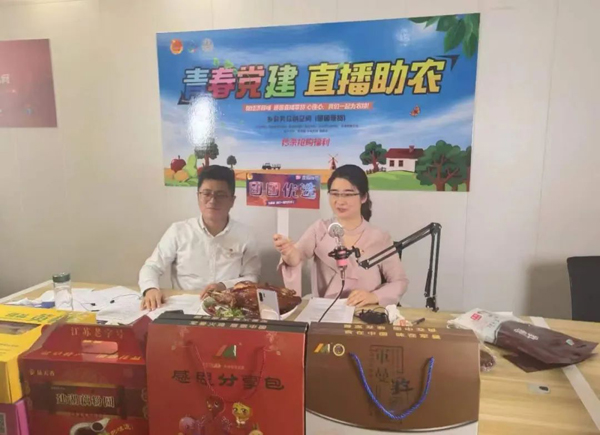
Lu Man (right), chairperson of Tianhe Eco-Agriculture Cooperative and the Party chief of Chenjia village in Gaozuo township, East China's Jiangsu province, sells agricultural products through live streaming. [Photo provided to npc.gov.cn]
Abundant e-commerce sales experience has helped Lu realize that agricultural product sales cannot solely rely on traditional means, and the future development of rural areas hinges on the improvement of supply chains of both talent and agricultural products.
Consequently, she focused on strengthening e-commerce related training for farmers and turned her attention to groups such as university graduates, returnees to rural areas and women.
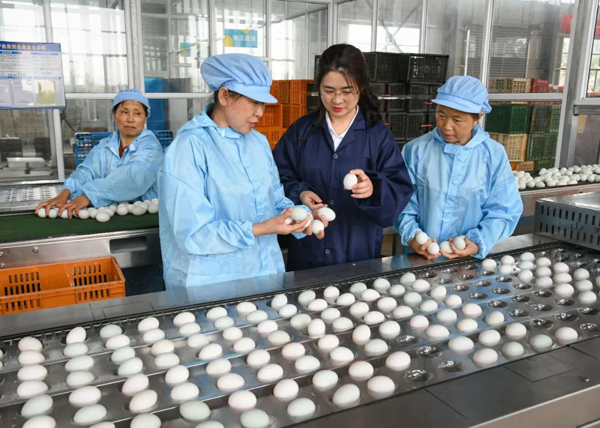
Lu Man (center in front row) talks with workers in a salted duck egg production workshop. [Photo provided to npc.gov.cn]
In 2015, Lu established the Xianggala Innovation Space, gathering young people aspiring to start businesses in rural areas. The space provides free entrepreneurial guidance and has attracted many university graduates to rural entrepreneurship.
In 2020, she founded the Junman Vocational Training School, offering training courses, lectures and career development planning to enhance young farmers’ marketing capabilities and live streaming promotional skills, and transforming them into “new rural entrepreneurs". Since its establishment, the school has held more than 335 sessions, training more than 20,000 individuals.
She has also worked with higher education institutions, using their technological expertise to guide young returnees in product innovation.
"The changes in the village over the years have enabled more and more young people to see opportunities for development," Lu said.
Leveraging the e-commerce platform "Xianggala" established by Lu, Chenjia village has evolved into a demonstration village for rural e-commerce and common prosperity, creating a new rural livelihood through the model of "production base plus farmers" in modern smart agriculture that integrates online and offline activities, with over 80 percent of villagers proficient in selling agricultural products online.
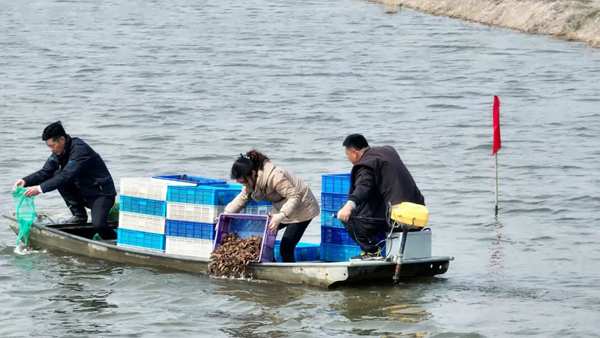
Lu Man, along with lobster farmers, pours seedlings into the pond. [Photo provided to npc.gov.cn]
Since being elected as a deputy to the National People's Congress (NPC) in 2018, Lu has been earnestly fulfilling her duties by listening to villagers and submitting suggestions on rural entrepreneurship, talent cultivation and rural vitalization to the NPC sessions.
In 2021, her cooperative was designated as a deputy liaison office with eight deputies to people's congresses of five different levels maintaining regular contact with villagers to learn about their difficulties and solicit valuable suggestions.
In response to the concerns raised by her fellow villagers, a crab trading and distribution center and a community canteen for the elderly have been established to enhance their income and improve livelihoods.
Thanks to Lu's efforts, a regulation on equipping public places with automatic external defibrillators came into effect in Yancheng in September last year, marking the city's first targeted and result-driven regulation with a streamlined legislative process.
Keeping the responsibilities of an NPC deputy in her heart, Lu said she will remain grounded in rural areas and work towards integrating the aspirations of farmers into the country's development drive.
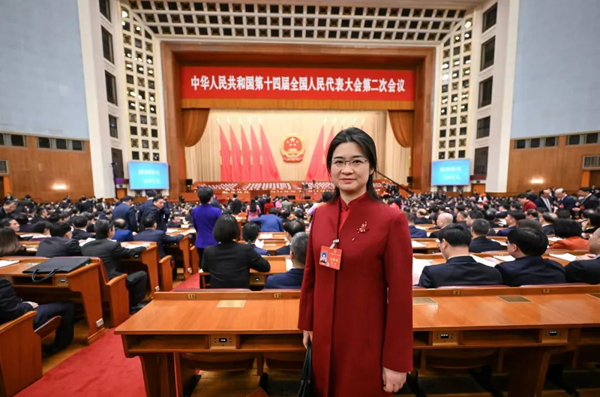
Lu Man, a deputy to the National People's Congress (NPC), attends the second session of the 14th NPC in Beijing in March 2024. [Photo provided to npc.gov.cn]
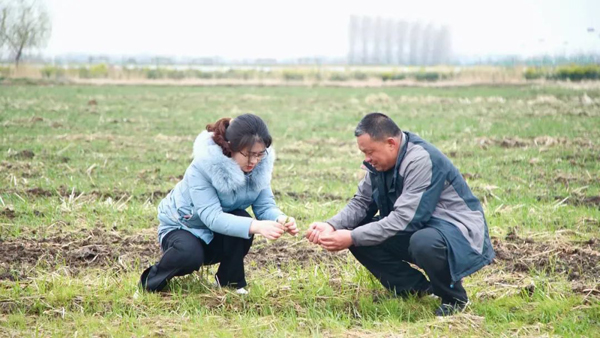
Lu Man inspects the growth of crop seedlings with a fellow villager. [Photo provided to npc.gov.cn]
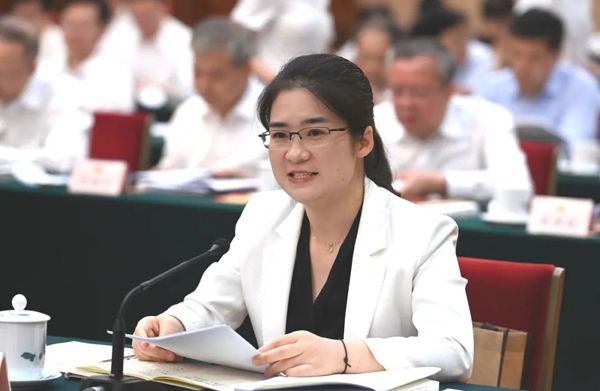
Lu Man, a deputy to the National People's Congress, delivers a speech at the symposium on upholding and improving the system of people's congresses in Beijing on Sept 14, 2024. [Photo provided to npc.gov.cn]
Wang Ping, Xu Hang and Zhang Weiqi contributed to this story.
- China's top legislator holds talks with speaker of Zambia's National Assembly
- China's top legislator meets Finnish president
- Lawmakers to meet early next month to deliberate draft laws, reports
- Senior Chinese legislator meets Ethiopian guests in Beijing
- Senior legislator solicits opinions on revisions to education laws



